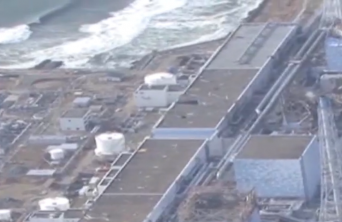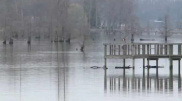Searching For Straight Answers: Fukushima Six Months Later
Six months after an earthquake and tsunami caused one of the largest nuclear disasters in Japan's history, the nation remains divided on what level of progress has been achieved.
Yoshihiko Noda, Japan's new prime minister, has promised a "speeding up" of recovery efforts and Toshio Nishizawa, president of TEPCO, said stabilization efforts at the plant's reactors are ahead of schedule, but there are no guarantees.
"I cannot promise you, but if things go smoothly with careful control, it is possible to bring the cold shutdown forward [before January]," he said.
However, residents are skeptical and unhappy with the efforts thus far. Yuki Osaku, who lives 200 kilometers away from the site of the accident, showed CNN a radiation meter detecting elevated levels of radiation near her home. Besides worrying over poisoning from contaminated food and surroundings, she feels she can't trust what she hears.
"I don't believe the government," she said. "As I do more research, there is nothing to make me feel more at ease about our safety."
She is not alone. From Tokyo Electric Power Company's hesitant flow of information to an unknown date of return for thousands of Fukushima residents, many feel frustratingly uninformed about the disaster they survived.
WATCH:
Residents are also fed up with nuclear energy altogether. Last month, Japan's legislature passed a bill to subsidize green energy, like wind and solar.
"People generally agree we should not add any more nuclear reactors," said Kono Taro, a member of Parliament.
Echoing their sentiments, nobel laureate Kenzaburo Oe spoke on Tuesday to urge the Japanese government to eschew nuclear power.
"The new prime minister seems to think that nuclear power plants are necessary for Japan's economy, and how to resume their operation is one of his key political agendas," Oe said, according to the Associated Press. "We must make a big decision to abolish all nuclear plants."
The Japanese government, however, is not looking to stop nuclear energy anytime soon. Noda has only encouraged a gradual phase-out of nuclear power.
"To build new reactors is unrealistic, and we will decommission reactors at the end of their life spans,” he said. “But it is also impossible to immediately reduce our dependence to zero."






